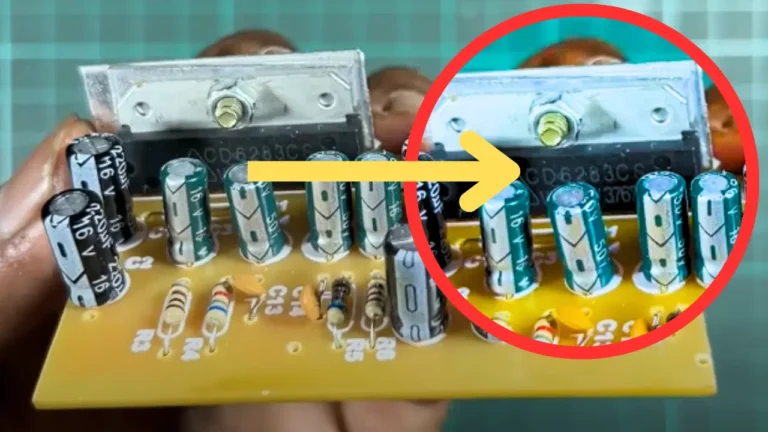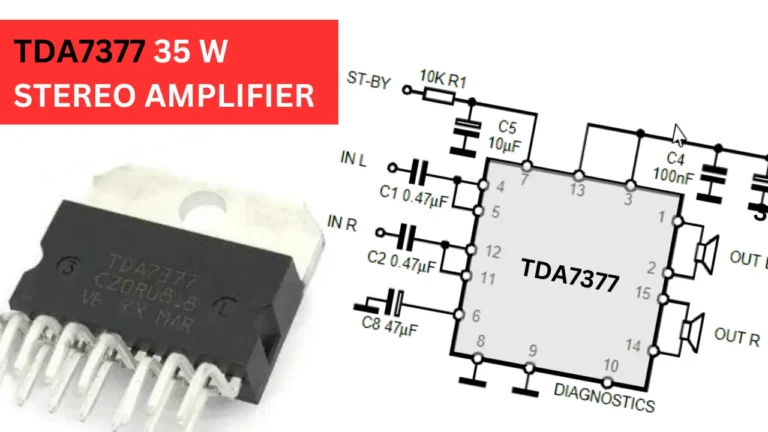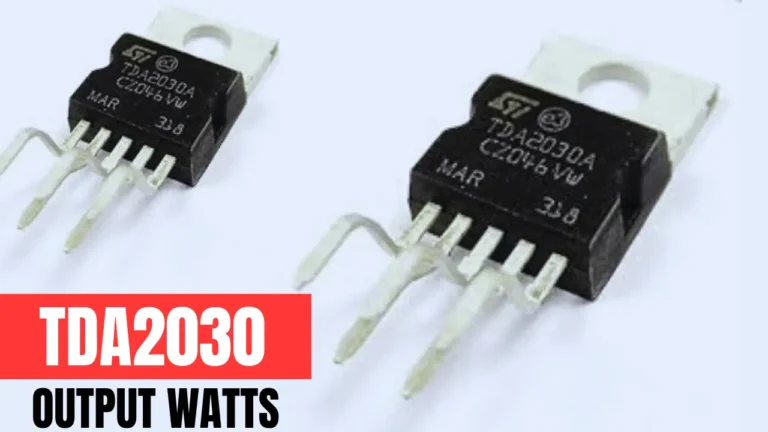Build a Small Transistor Amplifier using 2N2222, 2N2905, 2N3053. This mini amplifier circuit will work on a 9V Battery so it is very helpful for making a portable amplifier. The circuit diagram, working, and components list are given here.
Introduction
Making a simple and small amplifier circuit is an effective way to boost the input audio signals. To build this tiny amplifier circuit you need a small number of electronic components.
You can assemble this entire circuit in a breadboard to test the circuit. This circuit is designed with BJT (Bipolarjunction transistor). The working of this circuit is also given below.
You can read and get an idea about how the amplifier circuit works. By the end of this article, you can get a clear idea about how this transistor amplifier works, and you can build it easily.
Components Required
The required electronic components to build this amplifier circuit are listed below. Gather all the electronic components and let’s start building this circuit.
| SNo. | Component | Quantity |
| 1 | 2N2222 NPN Transistor | 1 |
| 2 | 2N3053 NPN Transistor | 1 |
| 3 | 2N2905 PNP Transistor | 1 |
| 4 | 470uf, 47uf electrolytic capacitor | 1 |
| 5 | 1K and 100K resistor | 1 |
| 6 | 1N4148 Diode | 2 |
Circuit Diagram
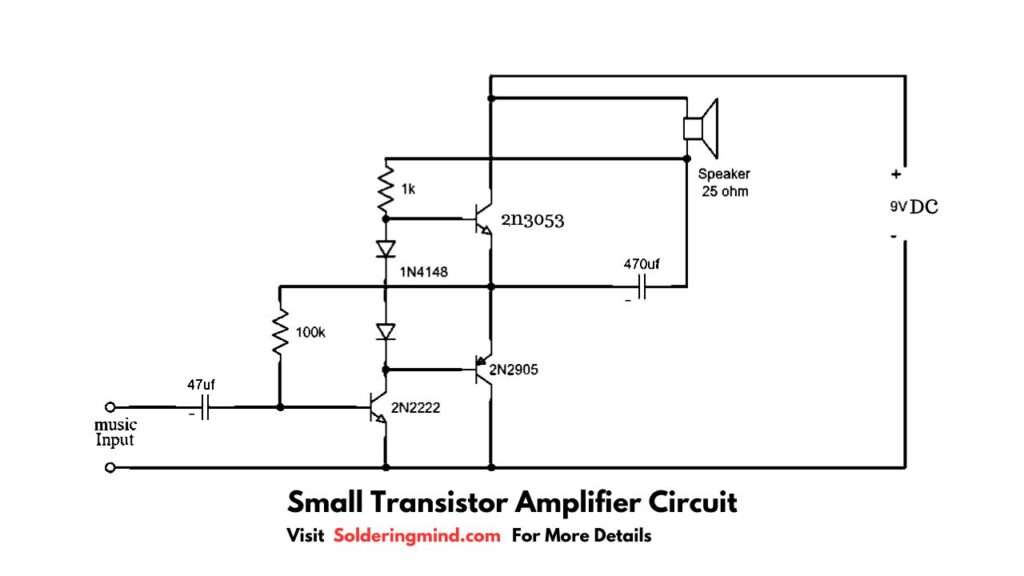
Pinout of Transistors
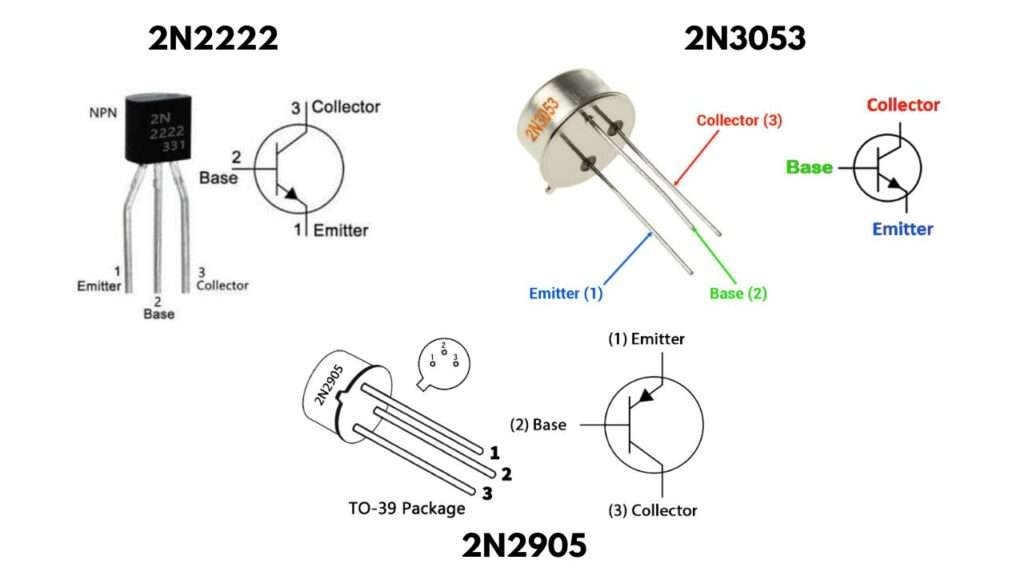
Working
This amplifier is very tiny and most commonly seen in car radio amplifiers. This circuit consists of two stages and the both stages are biased evenly using two 4148 diodes.
To maintain the stability a 1K ohm resistor is used in series with the emitter pin of the output transistors. When the bias current in the circuit increases the potential difference between the emitter and base decreases.
The amplifier circuit has an input impedance of about 500 ohms, and the voltage gain of around 5 when an 8-ohm speaker is connected. The speaker gets a 2 volt fluctuation in voltage with minimal distortion.
The power output is in the range of 50 milliwatts. If we increase the supply voltage you must add a heat sink to the output driver transistors, the power output will go up. The circuit draws about 30 milliamps from a 9-volt supply.


